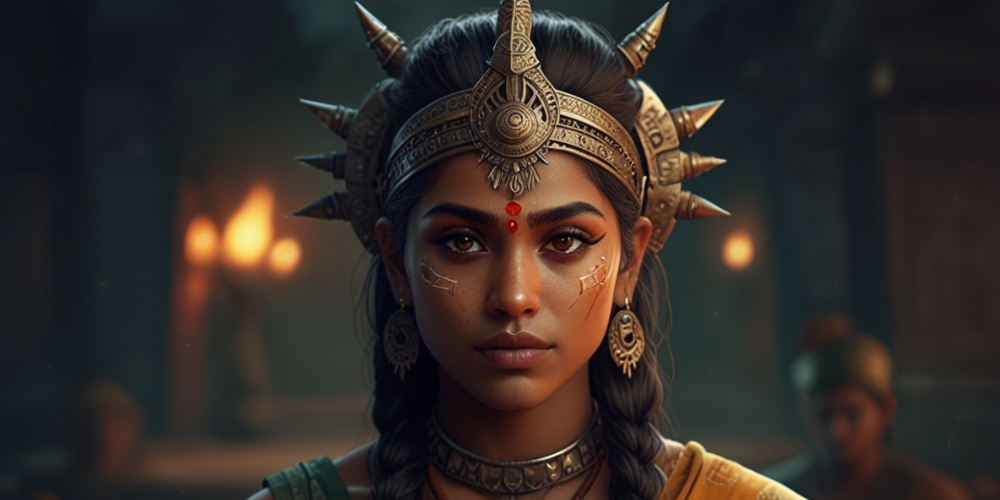Exploring Faith and Doubt: The Psychological Odyssey of Indika
- Jul 25, 2024

Indika dives deep into the psychological landscape of faith and doubt, set against the backdrop of a nightmarish 19th-century Russia. As a third-person puzzle game, it stands out because it balances a gripping narrative with philosophical explorations and stunning visual artistry. Though occasionally wobbly in its ambitions, developer Odd Meter’s commitment to exploring complex themes makes it a unique experience worth delving into.
The Intricacies of Faith and Doubt
Playing as Indika, a nun haunted by a demonic voice, the player winds through a torturous journey to deliver a letter. As Indika meets various characters, including Ilya, an escaped convict who claims divine communication, the game unpacks layers of faith, love, doubt, and suffering. Indika and Ilya's interactions explore contrasting interpretations of the same religious beliefs. This dynamic allows the game to delve into nuanced facets of Christianity, showing how the same rituals and texts can yield diverse meanings.
The frequent philosophical debates between Indika and Ilya could easily have slipped into pretentiousness, but they instead serve to flesh out the characters. Indika’s admission of joining the convent voluntarily is questioned by Ilya, who prompts her to ponder whether her decision was a product of free will or influenced by external factors. Such dialogues are essential as Indika grapples with her faith and strives to decode her life’s meaning.
The Power of Performance
Isabella Inchbald as Indika and Louis Boyer as Ilya deliver powerful performances that anchor the narrative. Their voice work is raw and genuine, capturing the spectrum of human emotions involved in their spiritual journey. Silas Carson’s portrayal of the devil adds another layer, humanizing the demonic voice with a mix of humor and sadism. However, the immersive experience is occasionally marred by awkward animations, where actions look robotic or dialogues fail to sync with mouth movements.
Visual Brilliance
Indika isn’t just a narrative triumph; it’s visually mesmerizing. Odd Meter uses creative framing, color schemes, and lighting to create a unique atmosphere. Wide-angle shots that distort Indika’s features and warp the background give the game an unsettling, voyeuristic quality. These stylistic choices contribute to scenes in a way traditional cinematography could not, intensifying moments of introspection and psychological tension.
One particularly striking scene involves a conversation about the moral nature of a giant wolf, with its body being dragged underwater, contributing to the macabre tone. Such moments elevate the narrative, proving that the game’s visual artistry is more than just eye candy—it’s integral to the storytelling.

Gameplay Mechanics and Philosophical Engagement
While the game shines in its thematic depth and visual sophistication, its puzzles are a mixed bag. Many are mundane tasks like moving boxes or aligning lifts, which feel out of place as the narrative complexities escalate. Though some puzzles that involve tearing apart and merging worlds resonate with Indika's internal conflicts, the simpler tasks can feel jarring.
Interestingly, the game leans into traditional video game mechanics to amplify its themes. Players earn points for acts of faith, such as performing religious rituals, but these points are ultimately meaningless. This mechanic mirrors Indika’s journey of questioning faith, creating a meta-narrative layer that reflects the protagonist’s internal struggle. Despite their futility, these points encourage players to engage in religious rituals, illustrating the sometimes arbitrary nature of faith itself.
The Sensitive Terrain of Dark Themes
Indika largely handles its themes of faith and doubt adeptly, but it stumbles when venturing into darker territories. Near the end, a scene touching on the horrors of sexual assault feels somewhat forced. Given the Catholic Church’s history of sexual abuse, the topic’s inclusion makes sense thematically, yet it’s not handled with the necessary care. The scene serves as a test of Indika's faith but could have benefitted from a more nuanced exploration rather than feeling rushed and almost exploitative.

Contextual Considerations
This misstep is particularly jarring because the rest of the game meticulously examines religious and existential themes. The abruptness of this moment contrasts sharply with the game's thorough handling of other complex issues. Although the developers wisely choose to exclude graphic details, the scene’s aftermath feels hurried, leaving players struggling to process what just occurred.
A Rare Examination of Religious Themes
Many games shy away from explicit religious themes, opting instead for allegorical or fictional representations. Indika’s decision to directly engage with Christianity facilitates a more honest and provocative exploration of faith. It scrutinizes the gray areas often glossed over in other media, making its journey a compelling one even when it falters.
Indika isn’t flawless, but its ambition, thought-provoking dialogues, and visual flair make it a fascinating game. It's a bold venture into the intricate web of human belief and doubt, providing a meaningful experience that lingers long after the final scene.
Latest Articles
-
![Budding Fortunes: Navigating the Intricate World of Animal Crossing Money Trees]()
- Feb 22, 2026
-
![Embracing New Magic: The Dawn of a Fresh Wizarding Journey]()
- Feb 22, 2026
-
![Romania's High-Stakes Counter-Strike 2 Playoffs: The Road to Glory]()
- Feb 22, 2026
-
![Ancient Shadows and Fluid Combat: A Journey Through Nioh 3's Mystical Japan]()
- Feb 08, 2026











